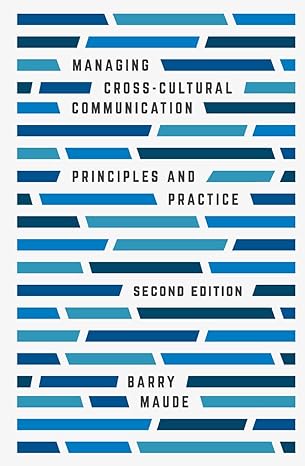When an American sales manager visits Malaysia, the business meetings he attends are conducted in English. Even
Question:
When an American sales manager visits Malaysia, the business meetings he attends are conducted in English. Even so, he finds it difficult to follow the discussion due to:
● Frequent mispronunciations. The Malaysians do not speak loudly enough and tend to mispronounce words and to run words together.
● Frequent misunderstandings. In one meeting the American interprets a long pause as acceptance of his offer to supply a Malaysian company with spare parts for its car fleet. In fact, the pause signals rejection of his offer.
● Comprehension difficulties. The sales manager sometimes fails to understand points made by Malaysian speakers. In one meeting, for instance, a marketing manager describes methods used to estimate future demand. But the marketer is not fluent in English and does not have the knack of being able to express technical points in layman’s language.
The sales manager decides that the best way to deal with these difficulties is to admit that he has them – and to ask for understanding from his hosts. The Malaysians respond positively. They begin to speak more clearly and distinctly in meetings, and they make sure that he understands important points by repeating a point in different words and giving examples.
The Malaysians point out that the American’s own pronunciation and explanations are causing problems for them. This feedback prompts the sales manager to improve his own communication by speaking more deliberately, pausing between points, and using simple words and phrases. In one meeting, after using the phrase ‘high-viscosity lubricants’ the American notices the Malaysians’ puzzled expressions and immediately adds: ‘That means “thick oil,” by the way.’
Step by Step Answer:

Managing Cross Cultural Communication Principles And Practice
ISBN: 978-1137507464
2nd Edition
Authors: Barry Maude





